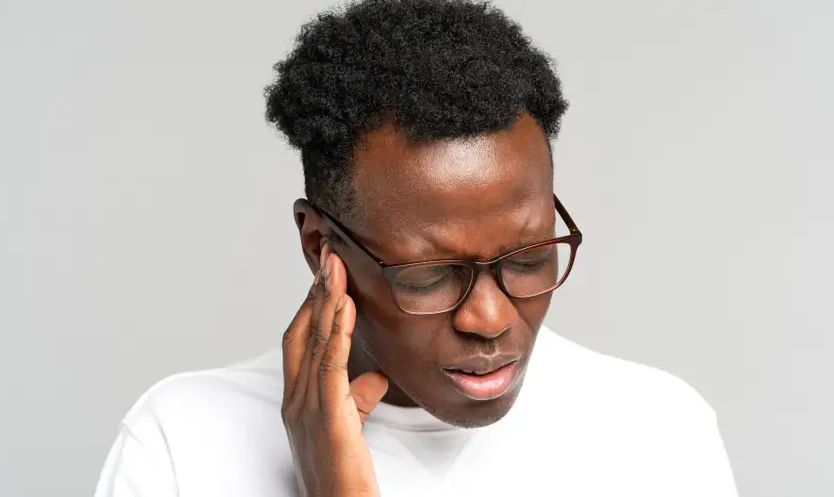What is tinnitus?

Going to a concert and rocking out can be an exhilarating experience. But if you hear muffled ringing in your ears, a phenomenon known as tinnitus, after the show, it may be a sign that you got too close to the speakers. This ringing happens when the loud noise damages the very fine hair cells that line your ear.
Long exposure to sounds over 85 decibels (dB)Trusted Source can cause hearing loss. Concerts tend to be about 115 dB or more, depending where you’re standing. The louder the sound, the shorter amount of time it takes for noise-induced hearing loss to occur.
The ringing you hear may be constant or sporadic. It may also appear as other sounds such as whistling, buzzing, or roaring. In most cases, tinnitus from concerts will resolve itself within a few days.
How to stop the ringing in your ears
While tinnitus can’t be treated immediately, there are things you can do to alleviate the noise in your ears as well as any stress caused by the ringing.
1. Play white noise or relaxing sounds
2. Distract yourself
Distracting yourself from the noise with other external sounds can help divert your attention away from the ringing. Listen to a podcast or some quiet music. Avoid playing these sounds at maximum volume, since this can be as damaging to your ears as attending a concert.
3. De-stress
Yoga and meditation are helpful relaxation methods. Download a meditation app to clear your head of extra stress or irritation caused by the ringing.
How long does the ringing last?
Occasional exposure to loud noise can bring about temporary tinnitus. Ringing that’s accompanied by a muffled sound may also indicate noise-induced hearing loss. These symptoms often go away within 16 to 48 hours. In extreme cases, it may take a week or two. Further exposure to extremely loud noises can also trigger the ringing again.
Sometimes this hearing loss can develop into tinnitus that lasts more than six months. This is a common condition that may cause long-term issues, but is rarely a sign that you’re going deaf or have a medical problem.
If you’re a frequent concertgoer, performing musician, or find yourself exposed to loud noises often, you may want to take steps to prevent long-term hearing loss.
Hearing loss is expected to rise dramatically in the coming decades.
How can I prevent ringing in my ears?
It’s always a good idea to take steps to keep tinnitus at bay. Research shows that even if the ringing disappears, there may be residual long-term damage.
- Understand what noises cause hearing damage, including concerts, motorcycles, and playing music at the loudest volume.
- Wear earplugs when attending concerts. Some venues may sell cheap foam ones at coat check.
- Limit how much alcohol you drink during a show or area with loud music. Blood flow to your ears can increase the sound of ringing.
- Have your hearing tested if you think you may have hearing loss.
When should I see a doctor?
While there’s no cure for tinnitus, there is ongoing to research for the condition. Medical professionals are also ready to help you handle any long-term stress issues that may come up from dealing with tinnitus. Make an appointment with your doctor if the ringing lasts for more than a week. See a doctor as soon as possible if the ringing in your ears accompanies hearing loss or dizziness.
Source: Healthline
- Top 10 Signs that you need a hearing test
- Government encouraged to include Audiologists in the Ministry of Health structures
